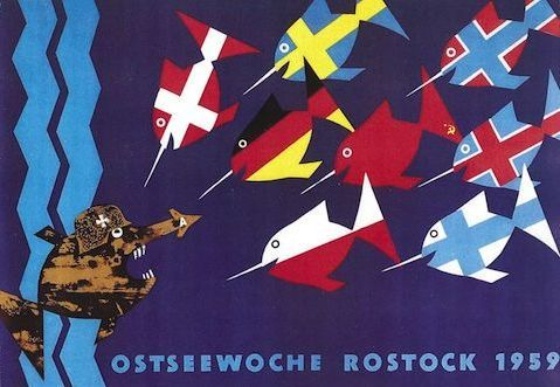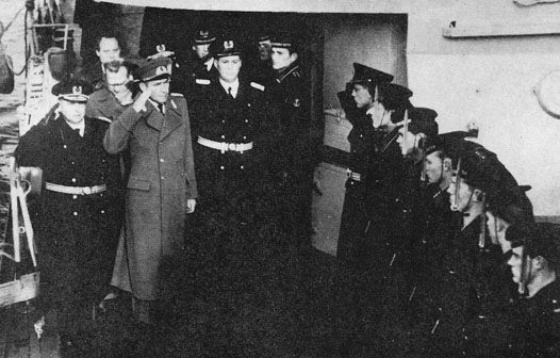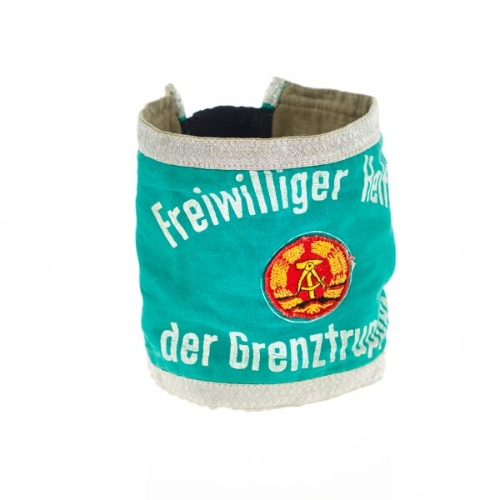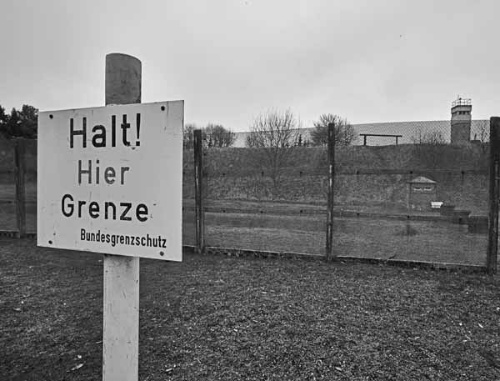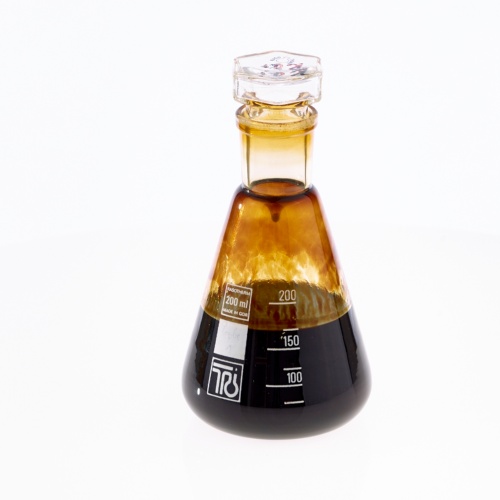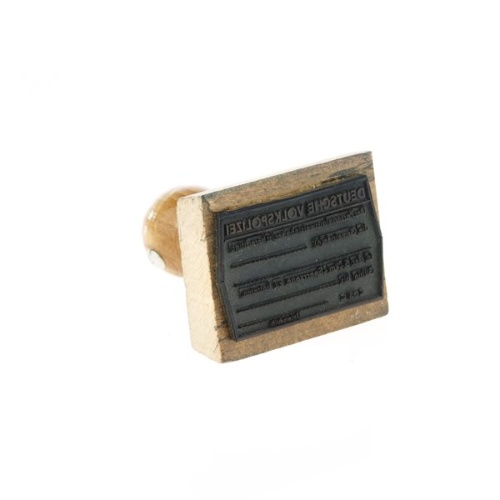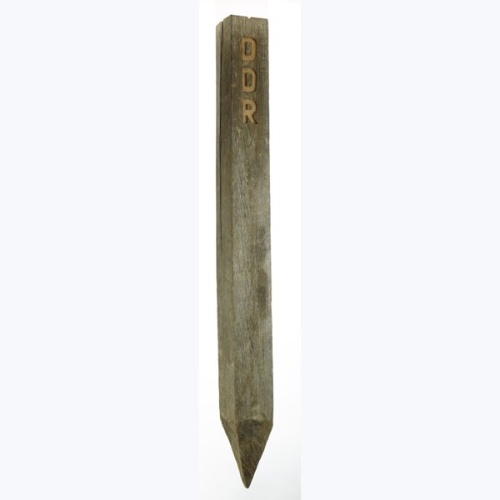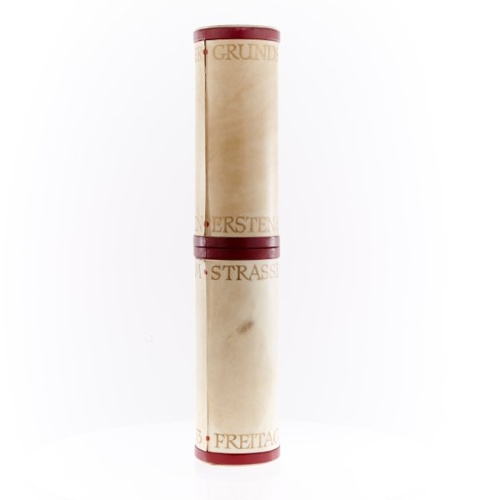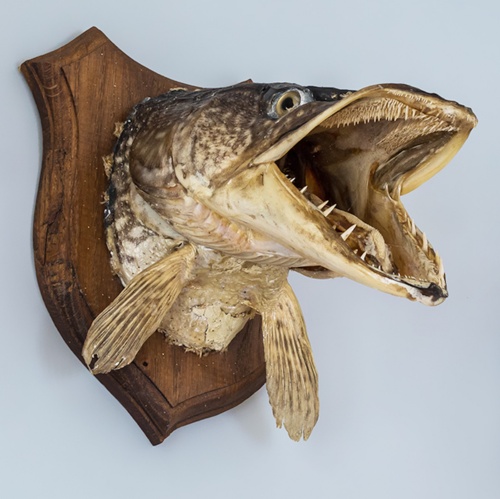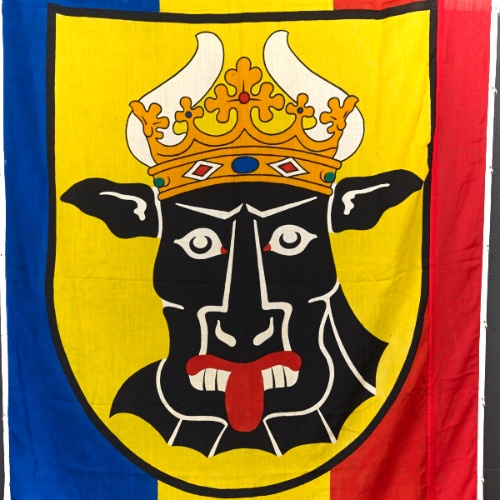In 1952 Mecklenburg was split into the districts of Rostock, Schwerin and Neubrandenburg. Political power was exercised by SED district leaders on the basis of orders from East Berlin. District councils had a controlling influence on the economy and administration.
On 17th June 1953 there were strikes in large companies for free elections, the release of prisoners or a reduction in rules. The demands were fulfilled in part but the strike leaders were detained.
From 1958 to 1975 the Baltic Sea week of the Baltic Sea countries took place in the district of Rostock. The background was the GDR’s struggle to receive international recognition.
From 1958 the “coast border brigade” monitored the north and became, in 1961, part of the “NPA border troops” with the construction of the Berlin Wall. The MfS controlled the border crossings and monitored the population.
The Soviet army was stationed approximately 30 km to the east of the border. Military airfields were built in Laage and Parchim.
From 1959, Radio GDR developed in Rostock the largest GDR regional programme with the “Ferienwelle.” In 1962 GDR television established the Baltic Sea studio in Rostock.
The first demonstrations in the north against SED politics took place from 19.10.1989 in Rostock after prayers for peace. The loosely structured New Forum also organised protests in other towns. New democratic forms developed communal round tables. The party landscape changed at the same time.
The federal state of Mecklenburg-Western Pomerania was re-formed in 1990 and Schwerin was the state capital. The CDU led the first two governments. Since then the state premiers have come from the SPD.
